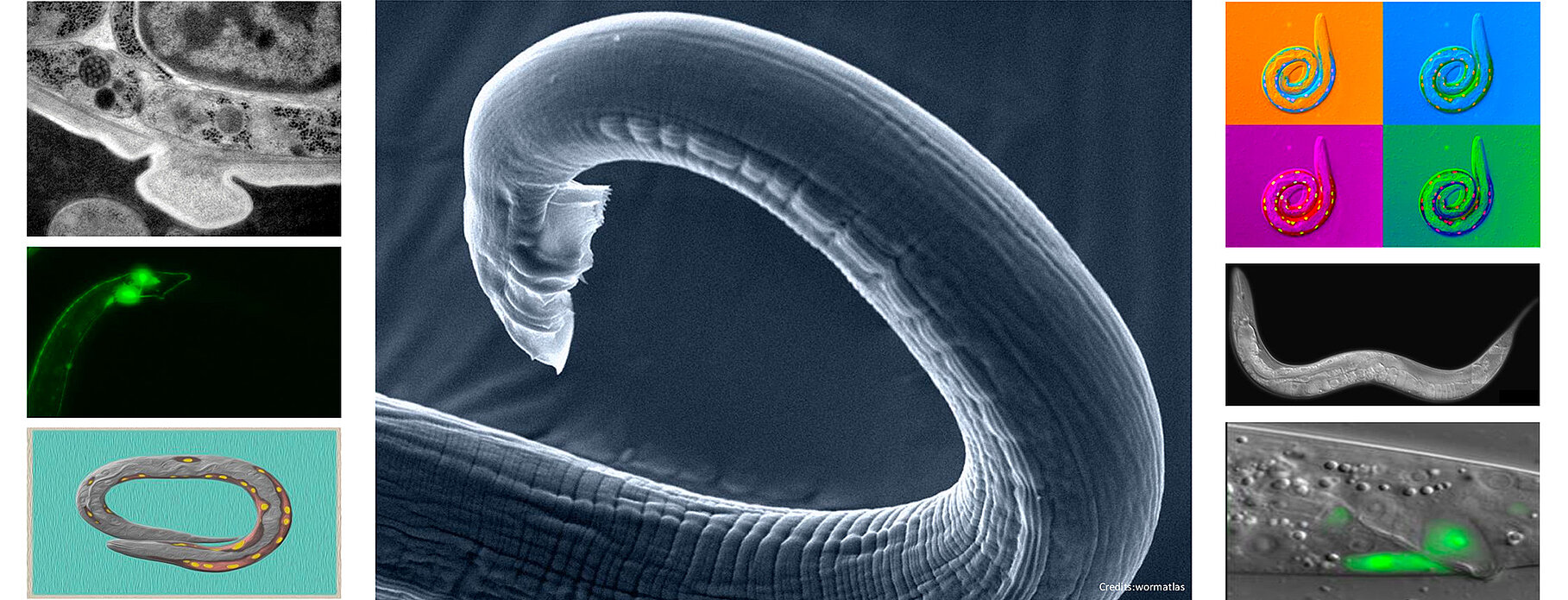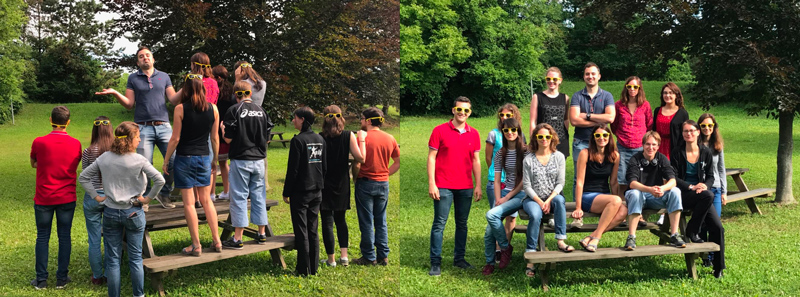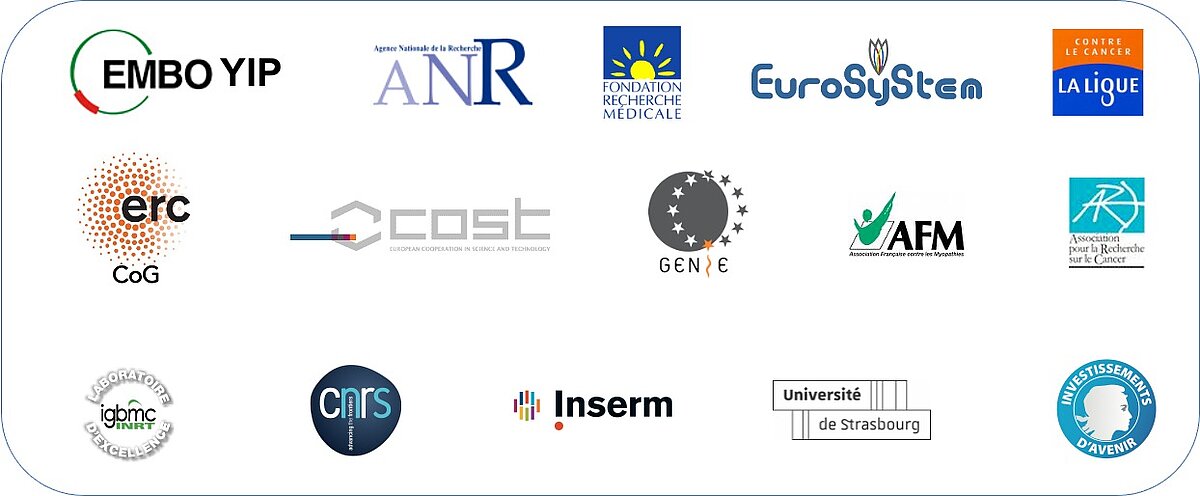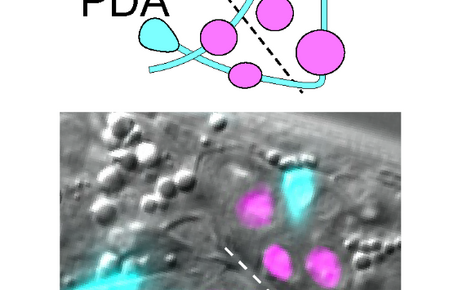
In vivo cellular plasticity and direct reprogramming
In vivo cellular plasticity and direct reprogramming
There is more to cells than meets the eye !!! While most differentiated cells maintain their specialized identity their whole life, some change their identity and become something else: this is fascinating !!! We focus on direct reprogramming, the process where a differentiated cell swaps its identity to become another kind of differentiated cell (aka Transdifferentiation; check out our Lambert at al, 2021 article for a more philosophical discussion of cellular identity).
How can this happen, and especially how can this happen naturally in a range of species ? Numerous examples of cellular plasticity in physiological, experimental and pathological settings exist, but precisely how a differentiated cell can change its identity remains unclear. Work in the lab aims at exploring the many questions triggered by such phenomenon : What enables a cell to change it its identity and what steps and cellular trajectory are at play ? How similar are different reprogramming processes ? Does this happen only in specific cells ? Are there mechanisms to suppress reprogramming in other cells ? How is this influenced by the environment ?
To tackle these important questions we established a powerful and innovative model, looking at natural direct reprogramming events in vivo, at the single cell level, in the nematode C. elegans. For example, we have dissected how a rectal cell changes its identity into a moto-neuron. Because of the C. elegans invariant cellular lineage, our system gives us access to all the steps of the process, including the early ones, a unique asset. We have begun the systematic identification of the molecular networks and the dissection of the cellular requirements underlying several direct cell type conversion in vivo, and use a combination of genetics (mutants and RNAi), imaging, genome recombineering (CRISPR-Cas9), biochemical and transcriptomics (single cell RNA Seq) approaches.
Our integrated approaches will contribute to unravel not only key mechanisms that allow a differentiated cell to become plastic and change its identity, but also fundamental principles governing cellular identity maintenance & reprogramming. Such knowledge has significant therapeutic implications, as it will deepen our understanding of the initiation of certain cancers, and will improve our ability to reprogram cells for regenerative medicine purposes.
You would like to solve the next questions in cellular plasticity ? We welcome spontaneous applications all year round (sophie@igbmc.fr)

Members
Current projects
We are hiring!
We are looking for an outstanding scientist to join a wider collaborative project studying the nature of cellular transitions between 2 identities, at the unique cell level
Our laboratory “In vivo cellular plasticity and direct reprogramming” at the IGBMC investigates fundamental cellular & molecular mechanisms underlying cell identity maintenance and reprogramming, using a combination of genomics, different genetic approaches and imaging technologies.An ANR-funded 2years postdoctoral position, starting early 2025, is available to join our lab at the IGBMC in Strasbourg, France. We have pioneered the study of natural instances of cellular reprogramming establishing the worm as a unique model, while fostering a creative and enthusiastic working atmosphere in the lab. C. elegans has proved a powerful model to unravel conserved principles underlying how a cell can naturally change its identity.
The project will take advantage of existing scRNAseq data detailing with minute precision the terminal differentiation of a cell and generate similar dataset for a transdifferentiating cell. The project aims to elucidate the TF cascade and GRN controlling the transition states between 2 identities, one of the biggest open questions in the field, and to compare it to those observed during induced reprogramming in mice through our collaborators.
Our team is part of the Development & Stem Cells Department, at the IGBMC, in Strasbourg, France. This Research Institute (www.igbmc.fr) provides access to state-of-the-art facilities and a vibrant international research environment. For more information about the group, please visit: http://igbmc.fr/jarriault
The successful candidate should have a PhD (or be in the final stages of completion) and be highly motivated with a strong interest in Developmental and Stem Cells Biology. The ability to work both independently and as a team member and experience in the use of molecular biology and genetic techniques are essential. Experience in working with C. elegans is a plus. Note that a very good track record and at least one publication as a first author is required.
Applicants should email a motivation letter, a CV, a description of research projects & experience as well as the name and contact info for 3 referees to:
Sophie JARRIAULT - e-mail : sophie.jarriault@gmail.com
Funding and partners
Work in the lab has benefited from the following fundings:
- ERC Consolidator Grant PlastiCell
- PEPR Cell-ID (G. Almouzni coord.)
- ANR CellPATH (Coordinator)
- ITN NervSpan (D Dupuy coord.)
- PRI NeuroLicencing (w. P Laurent, ULB)
- COST Grant BM1408 (Chair)
- ANR
- EMBO YIP networking grant / european GENiE network
- Ligue Nationale Contre le Cancer (LNCC)
- Association Française contre les Myopathies «AFM pôle IGBMC »
- EuroSyStem European Network of excellence
- Fondation pour la Recherche Médicale (FRM)
- Association pour la Recherche contre le Cancer (ARC)
- Association Française contre les Myopathies (AFM)
- ATIP de Biologie Cellulaire and ATIP+ de Biologie Cellulaire (CNRS)

News

Does dividing change a cell's chances of being reprogrammed?
Transdifferentiation is the conversion of one fully differentiated cell type into another. In a study published in Cell Reports, scientists…
Read more
Events
Awards and recognitions
- ERC CoG grant
- Nominated to the AcademiaNet (by EMBO)
- Grand Prix pour la Recherche Fondamentale, Académie des Sciences / Fondation Générale de Santé
- EMBO YIP (Young Investigator Programme) Award
- EuroSyStem Young Investigator Award
- Prix Scientifique de la Fondation Schlumberger Pour la Recherche et l’Enseignement (FSER)
- Prix Scientifique de la FRM
- « Initiative postdoc - retour », Ministère de la Recherche, des Sciences et de l'Enseignement
Resources
Our team is a founding member of the European Network GENiE https://worm-genie.eu/
- Watch Marie Charlotte, former PhD student, explain her project in 3 min (French)
- Watch a presentation of our team research for the celebration of the 10 years of the ERC http://www.canalc2.tv/video/14415
- Our open access review on cellular plasticity in the worm https://www.genetics.org/content/213/3/723.full
- WormBook http://wormbook.org/
- WormBase https://wormbase.org/
- WormAtlas https://www.wormatlas.org/
- Our open access articles:
- Riva et al 2021 https://doi.org/10.1101/2021.05.05.442643
- Ahier et al 2020 https://doi.org/10.17912/micropub.biology.000339
- Gomez-Saldivar et al 2020 https://doi.org/10.1534/genetics.120.303774
- Morin et al 2020 https://www.micropublication.org/journals/biology/micropub-biology-000218/
- Vibert et al 2018 http://www.ijdb.ehu.es/web/paper/180123sj/wound-healing-cellular-regeneration-and-plasticity-the-elegans-way
- Götz & Jarriault 2017 https://journals.biologists.com/dev/article/144/15/2714/48056/Programming-and-reprogramming-the-brain-a-meeting
- Doitsidou et al 2016 https://www.genetics.org/content/204/2/451.short
- Becker & Jarriault 2016 https://www.sciencedirect.com/science/article/pii/S0959437X16300892
- Zuryn et al 2014 https://science.sciencemag.org/content/345/6198/826
- Ahier & Jarriault 2014 https://www.ncbi.nlm.nih.gov/pmc/articles/PMC3948794/
- Zuryn & Jarriault 2013 https://www.tandfonline.com/doi/full/10.4161/worm.25081
- Kagias et al 2012 https://www.pnas.org/content/109/17/6596.long
- Morin & Jarriault 2011 https://www.medecinesciences.org/fr/articles/medsci/full_html/2011/03/medsci2011273p331/medsci2011273p331.html
- Richard et al 2011 https://www.ncbi.nlm.nih.gov/pmc/articles/PMC3188571/
- Zuryn et al 2010 https://www.ncbi.nlm.nih.gov/pmc/articles/PMC2940307/
- Jarriault et al 2008 https://www.ncbi.nlm.nih.gov/pmc/articles/PMC2268801/
Publications
2025
Article in a journal
Essential and dual effects of Notch activity on a natural transdifferentiation event
- Thomas Daniele
- Jeanne Cury
- Marie-Charlotte Morin
- Arnaud Ahier
- Davide Isaia
- Sophie Jarriault
Nature Communications ; Volume: 16 ; Page: 75
2024
Article in a journal
Developmental plasticity: a worm's eye view
- Sophie Jarriault
- Christelle Gally
Journal of Experimental Biology ; Volume: 227
2022
Article in a journal
A natural transdifferentiation event involving mitosis is empowered by integrating signaling inputs with conserved plasticity factors
- Claudia Riva
- Martina Hajduskova
- Christelle Gally
- Shashi Kumar Suman
- Arnaud Ahier
- Sophie Jarriault
Cell Reports ; Volume: 40 ; Page: 111365
2021
Chapter of the book
Preface, Préface
- Sophie Jarriault
- Benjamin Podbilewicz
Nematode Models of Development and Disease ; Volume: 144 ; Page: xv-xvii
Chapter of the book
On the origins and conceptual frameworks of natural plasticity—Lessons from single-cell models in C. elegans
- Julien Lambert
- Carla Lloret-Fernández
- Lucie Laplane
- Richard Poole
- Sophie Jarriault
Nematode Models of Development and Disease ; Volume: 144 ; Page: 111-159
2020
Article in a journal
Gene bashing of ceh-6 locus identifies genomic regions important for ceh-6 rectal cell expression and rescue of its mutant lethality
- Arnaud Ahier
- Shashi Kumar Suman
- Sophie Jarriault
microPublication biology
Article in a journal
A simple PCR-based method to follow and genotype alleles with single nucleotide changes
- Marie-Charlotte Morin
- Sarah Hoff-Yoessle
- Sophie Jarriault
microPublication biology
Article in a journal
Tissue-Specific Transcription Footprinting Using RNA PoI DamID (RAPID) in Caenorhabditis elegans, RAPID, une méthode pour révéler les empreintes transcriptionelles de tissus spécifique en utilisant Pol DamID chez C. elegans
- Georgina Gómez-Saldivar
- Jaime Osuna-Luque
- Jennifer I Semple
- Dominique A. Glauser
- Sophie Jarriault
- Peter Meister
Genetics ; Volume: 216 ; Page: 931–945
2019
Article in a journal
Developmental Plasticity and Cellular Reprogramming in Caenorhabditis elegans
- Joel Rothman
- Sophie Jarriault
Genetics ; Volume: 213 ; Page: 723 - 757
2018
Article in a journal
Wound healing, cellular regeneration and plasticity: the elegans way
- Laura Vibert
- Anne Daulny
- Sophie Jarriault
International Journal of Developmental Biology
